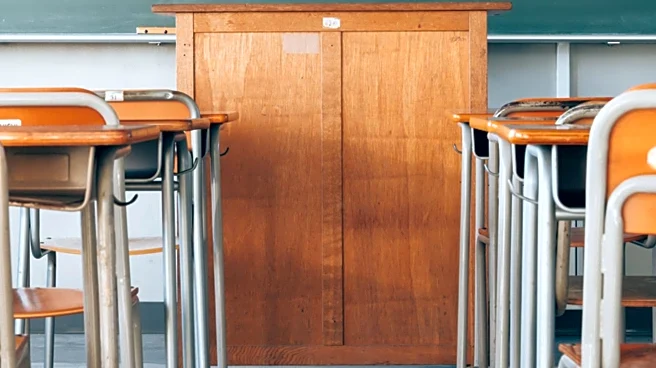What's Happening?
A study published on cinetotal.com.br examines the mediating roles of teacher-student relationships and perceived parental pressure in the academic activities and self-efficacy of college students. The
research highlights the importance of trust between teachers and students in fostering a positive academic environment. It suggests that strong teacher-student relationships can enhance students' self-efficacy, which is a predictor of academic performance. The study also explores how perceived parental pressure can impact students' academic activities and self-efficacy.
Why It's Important?
Understanding the dynamics of teacher-student relationships and parental pressure is crucial for improving educational outcomes. Strong relationships with teachers can boost students' confidence and motivation, leading to better academic performance. Conversely, excessive parental pressure may negatively affect students' self-efficacy and stress levels. Educators and policymakers can use these insights to develop strategies that support positive interactions and reduce harmful pressures, ultimately enhancing student success.
What's Next?
Educational institutions may consider implementing programs that strengthen teacher-student relationships and provide support for students facing parental pressure. This could involve training teachers to build trust and rapport with students, as well as offering counseling services to help students manage stress and expectations. By fostering a supportive academic environment, colleges can improve student retention and achievement.
Beyond the Headlines
The study underscores the broader implications of trust and pressure in educational settings, suggesting that these factors can influence students' long-term academic and career trajectories. Addressing these issues may require a collaborative approach involving educators, parents, and students to create a balanced and supportive learning environment.










